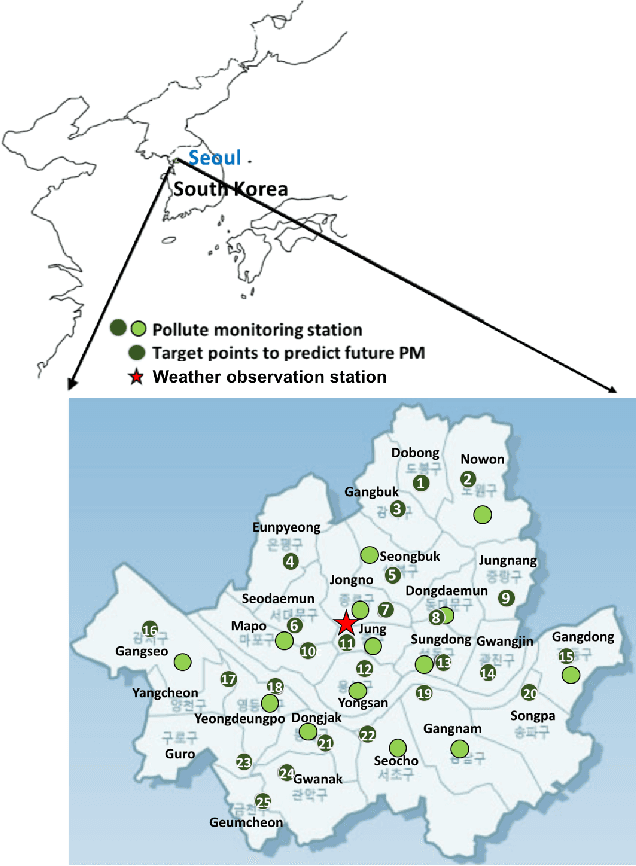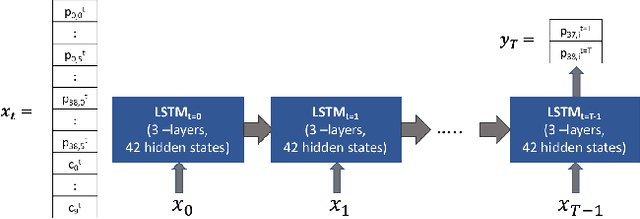Deep-dust: Predicting concentrations of fine dust in Seoul using LSTM
Paper and Code
Jan 29, 2019



Polluting fine dusts in South Korea which are mainly consisted of biomass burning and fugitive dust blown from dust belt is significant problem these days. Predicting concentrations of fine dust particles in Seoul is challenging because they are product of complicate chemical reactions among gaseous pollutants and also influenced by dynamical interactions between pollutants and multiple climate variables. Elaborating state-of-art time series analysis techniques using deep learning, non-linear interactions between multiple variables can be captured and used to predict future dust concentration. In this work, we propose the LSTM based model to predict hourly concentration of fine dust at target location in Seoul based on previous concentration of pollutants, dust concentrations and climate variables in surrounding area. Our results show that proposed model successfully predicts future dust concentrations at 25 target districts(Gu) in Seoul.
 Add to Chrome
Add to Chrome Add to Firefox
Add to Firefox Add to Edge
Add to Edge